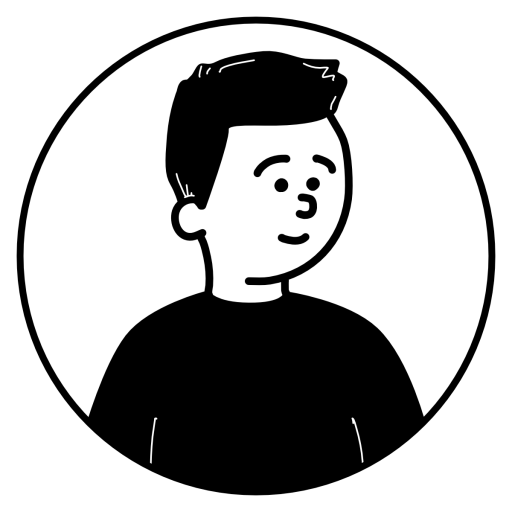Sleep Hacking – What’s the best time to drink coffee?
Understanding the best time to drink coffee is important to manage our energy throughout the day effectively. With coffee places popping…
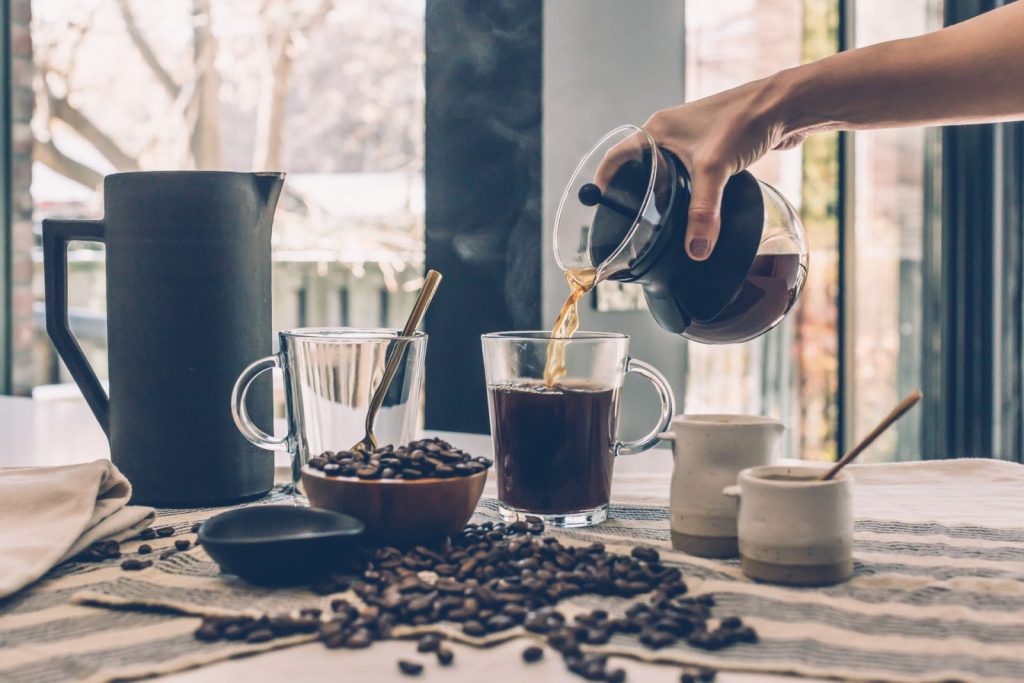
Understanding the best time to drink coffee is important to manage our energy throughout the day effectively.
With coffee places popping up in all corners of a modern city, it has become such an essential part of our daily lives and THE number one beverage of our modern society.
I can’t even imagine a day going without coffee anymore because it’s just so easy to treat yourself with a cup here and there. If you’re like me, you probably just skip over the breakfast and grab a coffee to go on the way to work. Wherever you go, and what culture you immerse yourself in, coffee has become a symbol of the modern fast-paced life and is associated with relaxation and status.
Personally, I’ve been a coffee junky the majority of my adult life. Especially now, while living the location independent lifestyle, I found myself working from a nice coffee place more often than before. I love visiting new coffee places, but there is only so much coffee I can drink a day.
But in recent years, I’ve been struggling with sleep deprivation and seriously started to question whether having 3-4 cups of coffee a day is actually benefiting my health. I wake up in the middle of the night many times and feel tired each morning.
Bad sleep can have many causes but the easiest thing for me, was to look at the most obvious part of my life that I have most control of: my caffeine intake. With that in mind, I want to share with you the best time for having a cup of coffee, so you can sleep better at night.
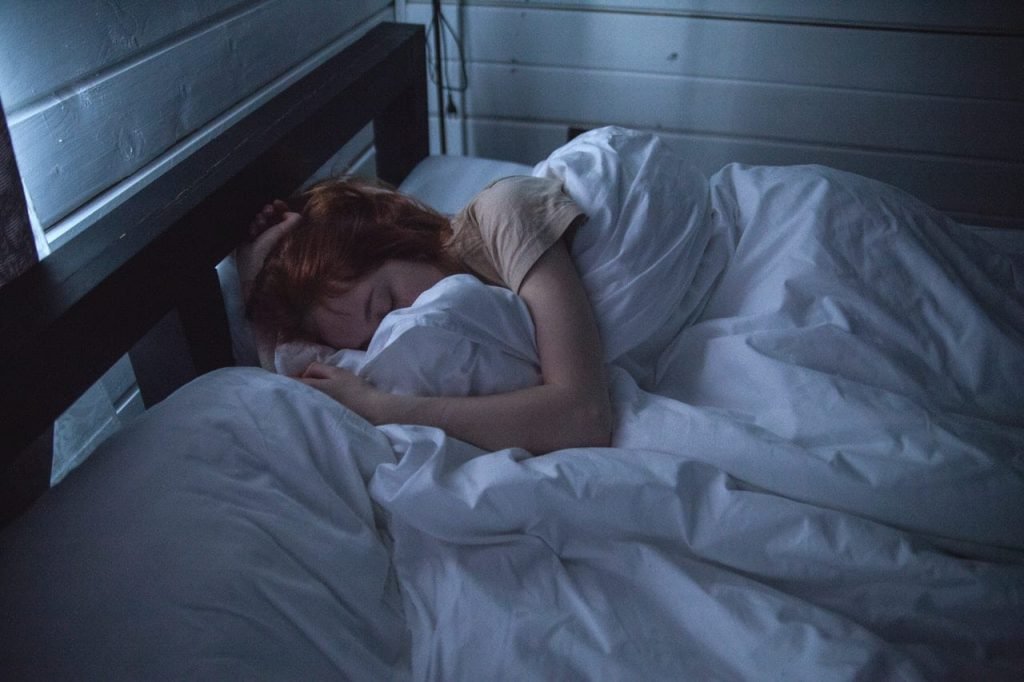
Why sleep is important
Ok, before we dive into coffee, here is a quick recap why your body needs sleep. I don’t want to bore you to death with scientific research because most of us already know that sleep is important. So here is a quick reminder of why sleep is important:
1. Your body goes into recovery mode
Every day, your body is exposed to a lot of tension. Whether physical tension in form of exercises and microscopic muscle tears or chemical reactions inside the body that involves cell replication mistakes that stops cells from functioning well. Most of the processes cause damages on a cellular level and you won’t even noticed it. During the night, your body uses the time when you’re resting to repair the damages. Without sleep, there would be no such process and your body would break down much faster.
2. Your body removes toxic waste
Your body is an amazing factory and performs highly complex chemical reactions all the time. In addition to the toxic substances that we absorb through eating and drinking, our body also creates toxic waste internally. If you never allow your body to rest, it won’t have the time and capacity to fight these toxins and eliminate them. Over time, these toxins would build up and most likely lead to severe physical damages or neurological disorders.
3. Your body protects itself
During the night, all your organs go into standby mode and only perform the most necessary functions. For example, your heart beat slows down and you breathe much less than you would when you’re awake. This standby mode extends the lifetime of your organs because they can take a rest.
4. You maintain your mental health
A lack of sleep is associated with all sorts of psychiatric conditions, including depression and anxiety. While researchers don’t know the exact mechanisms by which sleep helps safeguard you from these conditions, it’s safe to say that the body and brain are maintaining themselves as-is when you sleep.
How your sleep rhythm works
There are two hormones that are mostly responsible for our sleep cycle. Cortisol and Melatonin. They play a huge part in determining your circadian rhythms and the quality of our sleep.
Cortisol is the body’s primary stress hormone and responsible for many things:
- it increases your blood sugar
- regulates your blood pressure
- affects how your body uses carbohydrates, fats, and proteins
- keeps inflammation down
- boosts your energy levels for you to overcome stressful situations
But especially in the morning, cortisol helps you to become energized after waking up. It rises during the day and slows down towards the evening when Melatonin level is rising to tell your body that it’s time to sleep.
Usually, the melatonin levels start to rise 14 to 16 hours after awakening. If you wake up at 6.00 am, your body will become more tired around 20:00 o’clock. Melatonin production continues to increase throughout the night and peaks at around 3 am.
After that, it begins to slow down to wake you up and makes space for the cortisol to take over and the whole process starts again.
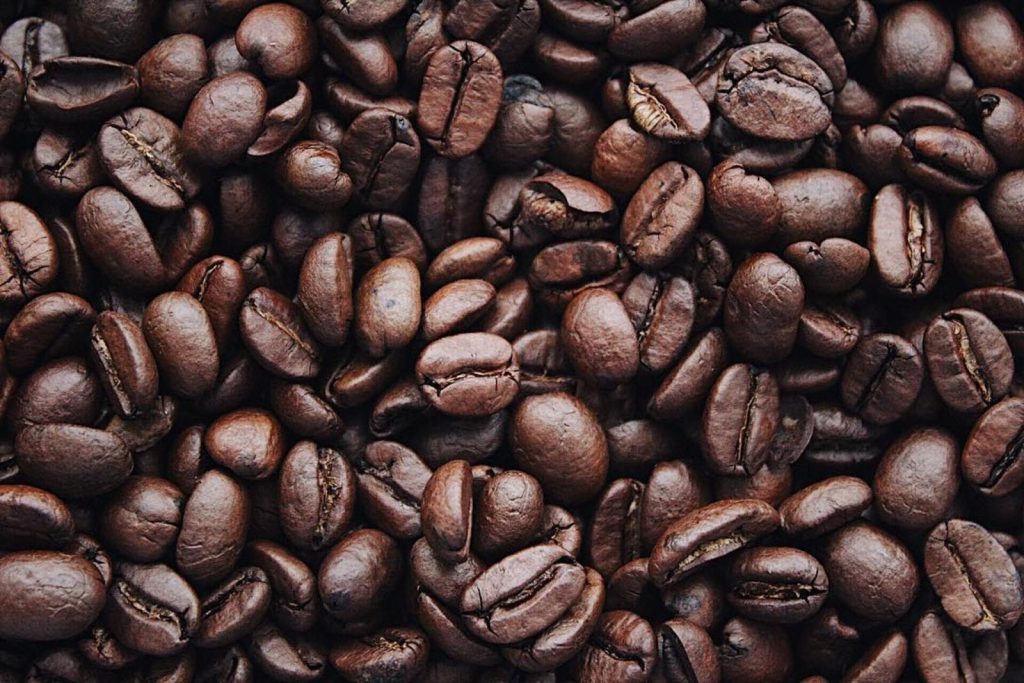
When NOT to drink Coffee
This entire process is important to understand when it comes to coffee consumption and improving sleep quality.
Because caffeine can raise your cortisol level, it’s pretty much wasted energy to drink it when your cortisol peaks. But even worse, if your natural cortisol production is high and you add caffeine to the equation, it can even lead to an over-production of cortisol which can end up in high blood pressure, bad mood swings or even anxiety.
In order to know when it’s the best time to drink coffee, we need to understand when our body is producing cortisol throughout the day:
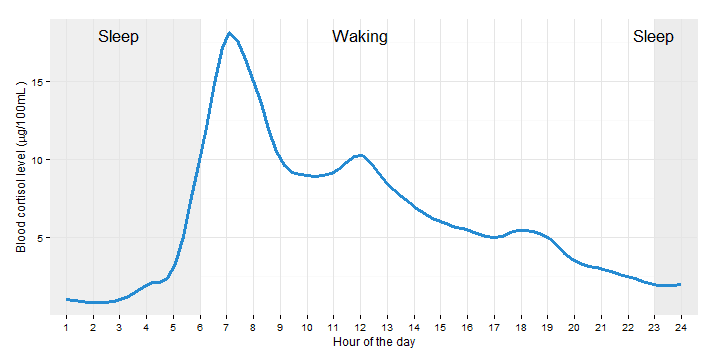
As you can see, it peaks in the morning around 30-45 min after waking up and falls rapidly in the next couple of hours. While the biggest rise in cortisol happens in the morning, you still have small peaks throughout the day, around 12:00 -13:00 and 17:30-18:30
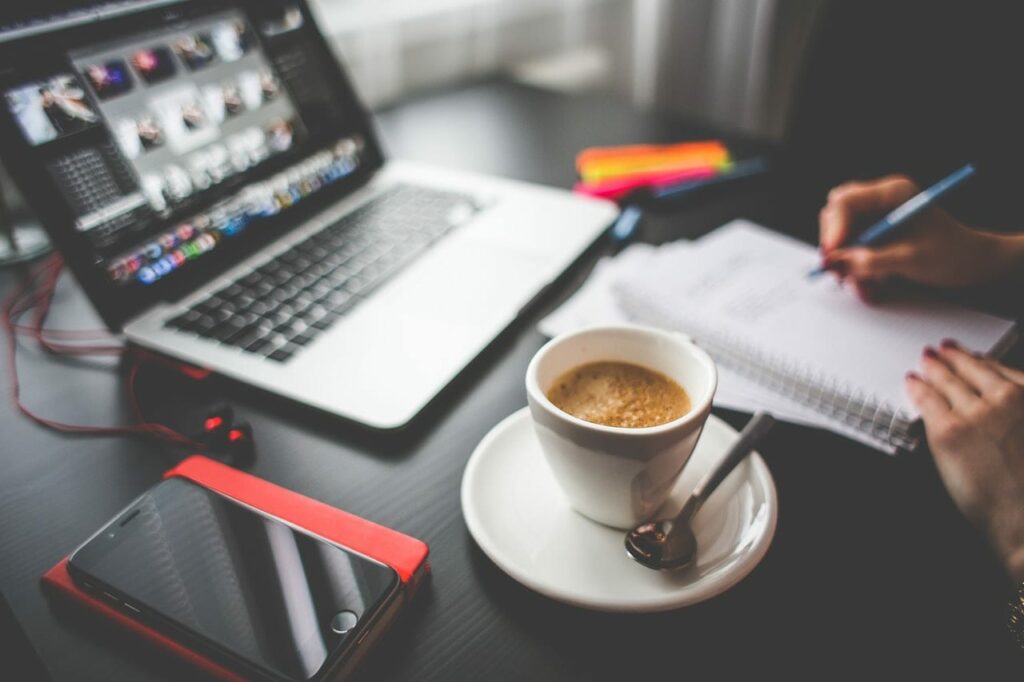
The Best time to drink coffee
Ok, with that in mind we can now determine the best time to drink our beloved cup of coffee.
According to what we know now, the best time to drink coffee is…
- In the morning between 9:00 and 11:30
- In the afternoon between 13:00 and 17:00
Here is the caveat though: if you drink another cup after 6pm, it will most likely mess with your natural cortisol level and decreases your sleep quality.

What time should you drink the last coffee?
Don’t believe anyone who says they can drink coffee all day and their sleep is not affected at all. It is widely documented that late caffeine consumption has an impact of the sleep quality. Some people just can’t make the connection between feeling slow and tired in the morning and the cup of coffee they had at midnight.
According to this study, drinking coffee even 6 hours! before going to sleep is directly correlated to a decrease of sleep time.
So plan ahead: If you are going to bed at 22:00, you should have your last cup of coffee around 16:00.
In my case, I like to have the last cup around 14:00 after lunch to get me through the afternoon dip. In the past, I’ve noticed that every coffee I had after 16:00, always led to restless sleep. The older I got, the more sensitive I got. Listen to your body and find out what works best for you.
Let’s recap
So there you have it. A short and crisp explanation of when to have your most favorite drink throughout the day.
Let’s recap what we’ve learned today:
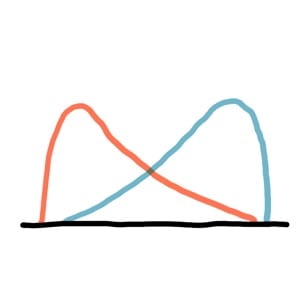
1.Cortisol wakes you up Melatonin makes you sleep
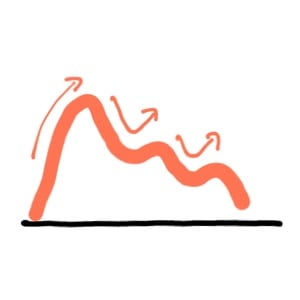
2. Cortisol peaks in the morning and gets little bumps during the day.
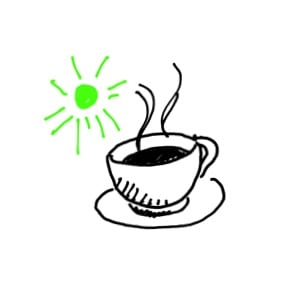
3. Morning Coffee: 9:00 – 11:30.
Best = 10:00
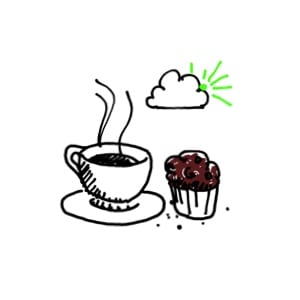
4. Afternoon Coffee: 13:00 – 17:00.
Best = 14:00
Remember: A high cortisol levels signals your body that you’re in a dangerous situation (fight or flight instinct) and keeps you alert (awake). This makes it impossible for your body to fall asleep during that time. For that reason, drink the latest cup 6h before going to sleep or even 7h to be safe. This ensures that your cortisol level is low enough so your Melatonin can to take over.
How did my sleep improved?
After immersing myself in the topic and implementing strategies, that I mentioned above, I found myself waking up less during the night. I also found that I have more days where I sleep through the next morning. It feels good to be honest.
It is needless to say, that my overall sleep didn’t improve because I drunk less coffee. Yes, I reduced my coffee consumption to only one cup a day between 14:00 – 15:00, but I also do watch my stress level by meditating frequently and getting my body exhausted through workouts. I also cut down on alcohol a lot and keep in mind not to have heavy meals late at night.
There are so many factors that play together and you should always not look at one single thing. Creating better sleep is a holistic approach, as with almost everything in life.
For that reason, I included some other tips below that I found extremely useful. Start with one thing and slowly introduce other healthy habits and soon you will find yourself sleeping like a baby 🙂
How to sleep better
Besides having coffee at scheduled times, here are some other things you can do to improve your sleep quality:
- maintain a regular sleep schedule so that your cortisol & melatonin production is stable
- workout regularly: your body produces cortisol short term but lowers it in the long term. workouts in the morning are best, otherwise your body stays alert at night.
- exposed yourself to daylight. this helps Melatonin production. If you stay in a dark room all day, your body doesn’t produce enough Melatonin to ensure quality sleep
- Don’t eat heavy at night because your body produces cortisol to make sure organs are working and breaking down food
- use earplugs at night. even if you don’t notice it during your sleep, but your body still picks up sounds (to prevent you from danger!)
- eat healthy and limit the amount of sugar because it is one of the most common triggers for cortisol release
- learn to relax and recognize stressful thinking. Meditation is good practice to have
- maintain healthy relationships and cut off the toxic people in your life
- Limit your exposure to blue light at night: turn on blue light filter on your devices. At best, don’t use devices 2h before going to sleep anyways and read a nice book instead. It’s a good habit to have in general
